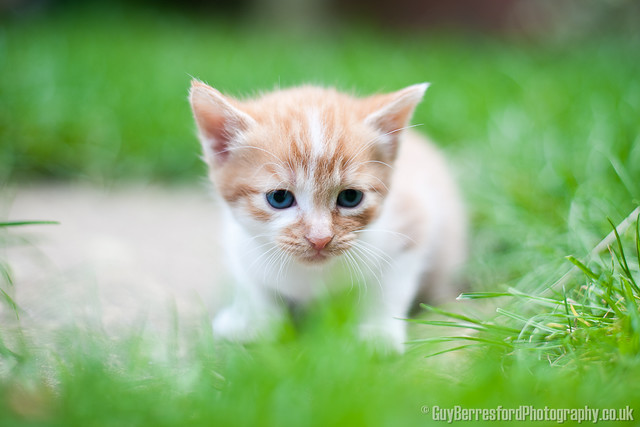Words for small, little and related words in Celtic languages.
Words marked with a * are reconstructions.
| Proto-Celtic | *bikkos, *biggos, *bekkos, *beggos = small, little |
|---|---|
| Old Irish (Goídelc) | bec(c) [ˈbʲeɡ] = small, little becán = little |
| MIidle Irish (Gaoidhealg) | bec, beg = small, little, a small amount becaid = to make small, deplete becaigid, begaigh = to lessen, diminish, reduce becán, begán, beccan = a little, small quantity, a few, a small number, little one, child, humble, lowly one becda = lowly, humble |
| Irish (Gaeilge) | beag [bʲɔɡ / bʲɞɡ / bʲɛɡ] = little, small, small amount; few beagadán = diminutive person, little one beagaigh = to lesson, diminish beagán = little, a few, a little, somewhat beagchainteach = silent, taciturn beagchéillí = senseless, foolish |
| Scottish Gaelic (Gàidhlig) | beag [beg] = small, little, wee; minor; petty, puny, trifling; slight beagadh [begəg] = to diminish, lessen, reduce beagachadh [begəxəɣ] = diminishing, lessening, reducing beagag [begag] = small thing, trifle beagan [began] = a little, a few beaganas [beganəs] = slight, snub beagnachd [begnəxg] = parvity, smallness |
| Manx (Gaelg) | beg = small, short, slight, few, poky, model, narrow, quiet, dwarf beggan = somewhat, slightly, partly, faintly, a few, little, small piece begganid = littleness, smallness, slightness beggid = diminutive, diminutiveness, littleness, paltriness |
| Proto-Brythonic | *bɨx = small |
| Middle Welsh (Kymraec) | hach, bych, bâch, = small, little baches, baçes = darling, little, little woman bachken, bachcen = boy, lad, youngster, servant, son, child bachcennes = young girl, maiden, damsel, lass, wench |
| Welsh (Cymraeg) | bach [baːχ] = small, little, short; not fully grown or developed, young; insignificant, unimportant, humble; small (business); lower-case (letter); dear, beloved; poor baches = darling, little, little woman bachgen = boy, lad, youngster, servant, son, child bachgennes = young girl, maiden, damsel, lass, wench bachigol = diminutive, small, little bychan [ˈbəχan] = little, small, minute, diminutive; inconspicuous, obscure, unimportant, petty; young inexperienced; little one, young child bychanaf, bychanu = to abase, disparage, disregard, slight, minimize bychander, bychandod = littleness, smallness, scarcity, contempt, pettiness bychanig = very little/small, minute, diminutive, bit, piece bychan bach very little |
| Middle Cornish (Cernewec) | bechan, bian, bichan, bihan, bochan, byan, byhan = little, small |
| Cornish (Kernewek) | byghan [‘bɪhan] = little, small byghanhe = to reduce, make smaller byghanna = smaller |
| Middle Breton (Brezonec) | bihan, byhan = small bihanaat, bihanhat, bihanat = to shrink, diminish bihanaet, bihannaet = decrease bihanded, bihandet, bihandætt = smallness |
| Breton (Brezhoneg) | bihan = small, insufficient, modest, little bihanaat = diminutive, pet name bihanadur = miniature bihanniver = minority |
Etmology: possibly from the Proto-Indo-European *bʰég-ko-s, from *bʰeg- (to break) + the suffix *-kos [source]. Words for small and little in Romance languages, such as petit in French, pequeno in Portuguese and pequeño in Spanish, possibly come from the same Proto-Celtic root, via the Latin word *pittus (small, little) [source].
| Proto-Celtic | *legus = small |
|---|---|
| Gaulish | lau = small |
| Old Irish (Goídelc) | lagu, lugu, laigiu = smaller |
| Middle Irish (Gaoidhealg) | lagu = smaller |
| Irish (Gaeilge) | laghad = smallness, fewness laghadaigh = to lessen, decrease, diminish, reduce laghadaitheach = lessening, decreasing laghadú = decrease, diminuition, reduction laghadúchán = (act of) diminution níos lú = smaller is lú = smallest, least |
| Scottish Gaelic (Gàidhlig) | lugha = less, least, more or most disagreeable nas lugha = smaller, less, shorter, minimum as lugha = smallest, tiniest, shortest laghad [̪l̪ˠɤɣəd] = smallness, littleness, minority luighead = degree of smallness, littleness laghdaich, lùghdaich = (to) decrease, diminsh, lessen, reduce, decline |
| Manx (Gaelg) | loo = fewer, least, little(r), minimim (ny) sloo = less, lesser, smaller, shorter by loo = smallest, fewest, less leodagh = decreasing, degrading, dreogatory leodaghey = to decrease, minimize, reduce, diminish |
| Proto-Brythonic | *llaɣw = small, bad *llaɣü = smaller |
| Middle Welsh (Kymraec) | llaw = small, little, low, mean, weak llei, lley = smaller, less, fewer leyhaf, lleyaf, lleiaf = least, smallest, lowest, fewest leihaa, leihaei, lleihav, leihau = to become smaller or less |
| Welsh (Cymraeg) | llaw = small, little, low, mean, weak llai [ɬai̯] = smaller, less, fewer lleia(f) = least, smallest, lowest, fewest lleiafrif = minority lleihad = a lessening, decrease, easing lleihadog = belittling, diminutive, derogative lleihau = to become smaller or less, to diminish, to shink, to decrease, to less, to shorten |
| Middle Cornish (Cernewec) | le = less, smaller leia = least, smallest leyhy, lyha = to make smaller, diminish, lessen |
| Cornish (Kernewek) | le = smaller, less, lesser, fewer, minor lehe = to lessen, extenuate, mitigate, reduce, shrink, zoom out leheans = reduction |
| Old Breton (Brethonoc) | lau = less, fewer |
| Middle Breton (Brezonec) | lau = less, fewer |
| Breton (Brezhoneg) | lei = less, fewer leiaat = to decrease, lower, attenuate |
Etymology: from *h₁léngʰus (lightweight, easy, nimble), from *h₁lengʷʰ- (to move lightly or effortlessly; lightweight) [source]. Words from the same PIE roots include gelingen (to turn out well, go smoothly) in German, light and lever in English, licht (light, easy, mild) in Dutch, and léim (to jump, leap) in Irish [source].
Sources: Wiktionary, Etymological Dictionary Of Proto Celtic, In Dúil Bélrai English – Old Irish glossary, eDIL – Electronic Dictionary of the Irish Language, Teanglann.ie, Am Faclair Beag, An etymological dictionary of the Gaelic language, Fockleyreen: Manx – English Dictionary, Online Manx Dictionary, Gaelg Corpus, Geiriadur Prifysgol Cymru, Lexicon cornu-britannicum : a dictionary of the ancient Celtic language of Cornwall, Gerlyver Kernewek, Devri : Le dictionaire diachronique du breton, Geriafurch, TermOfis



